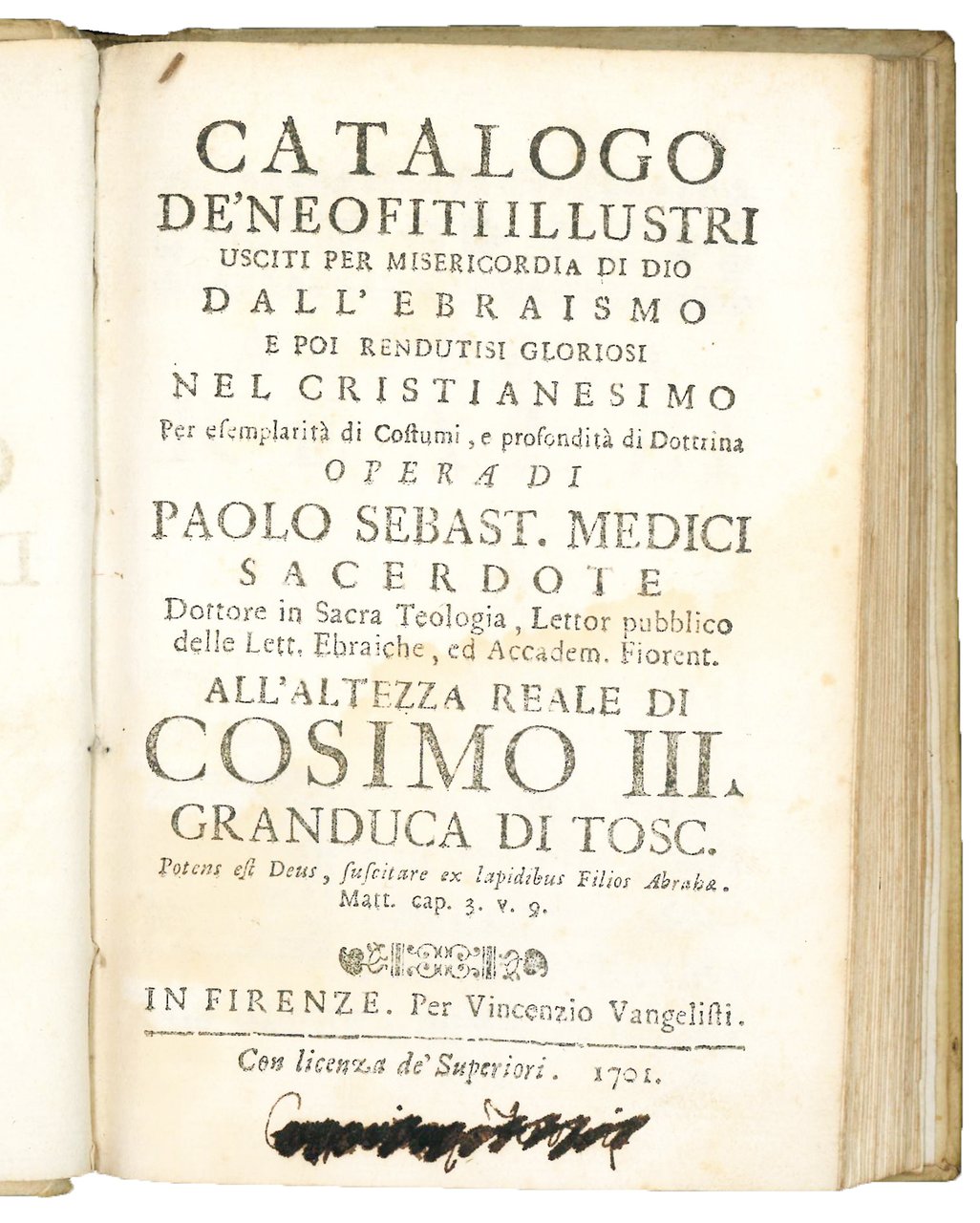
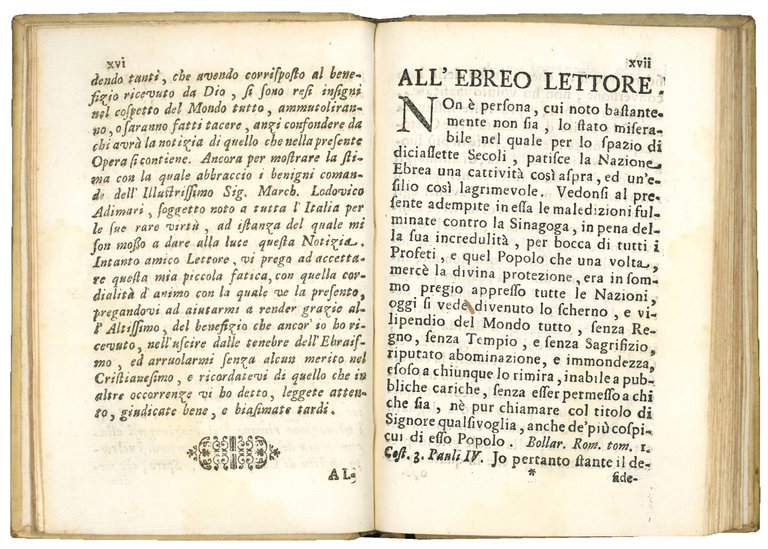
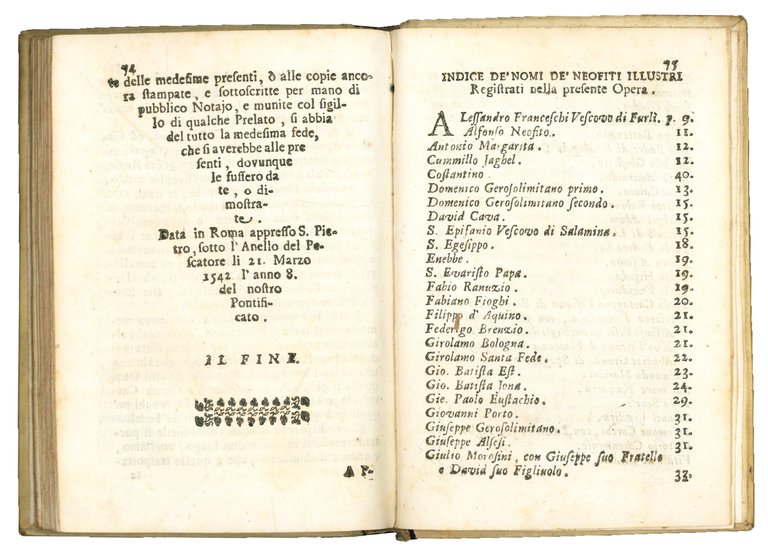
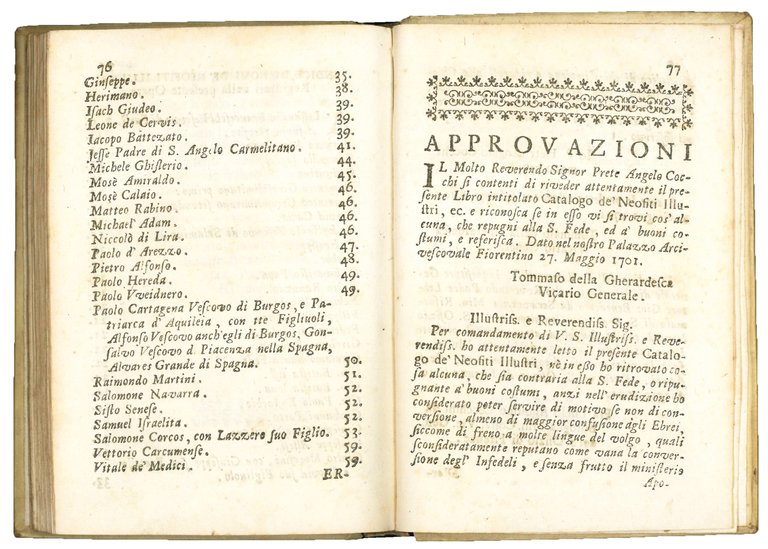
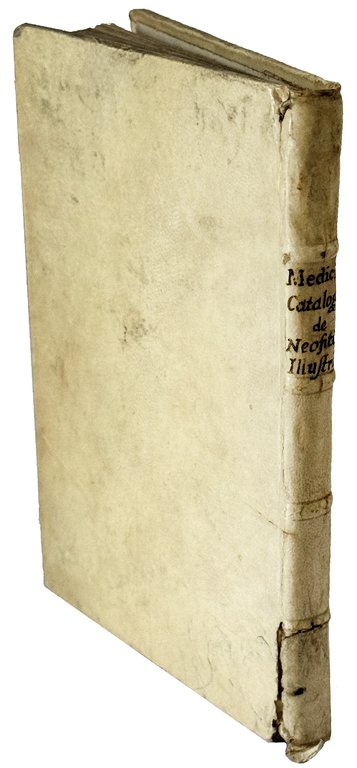
Livres anciens et modernes
MEDICI, Paolo Sebastiano (1671-1738)
Catalogo de' neofiti illustri usciti per misericordia di Dio dall'Ebraismo e poi rendutisi gloriosi nel Cristianesimo per esemplarità di costumi, e profondità di dottrina opera di Paolo Sebast. Medici sacerdote dottore in Sacra Teologia, Lettor pubblico delle Lett. Ebraiche, ed Accadem. Fiorent. all'altezza reale di Cosimo III [...]
Vincenzio Vangelisti, 1701
500,00 €
Govi Libreria Antiquaria
(Modena, Italie)
Les frais d'expédition corrects sont calculés une fois que l'adresse de livraison a été indiquée lors de la création de la commande. Un ou plusieurs modes de livraison sont disponibles à la discrétion du vendeur : standard, express, economy, in store pick-up.
Conditions d'expédition de la Librairie:
Pour les articles dont le prix est supérieur à 300 euros, il est possible de demander un plan de paiement échelonné à Maremagnum. Le paiement peut être effectué avec Carta del Docente, Carta della cultura giovani e del merito, Public Administration.
Les délais de livraison sont estimés en fonction du temps d'expédition de la librairie et de la livraison par le transporteur. En cas de retenue douanière, des retards de livraison peuvent survenir. Les frais de douane éventuels sont à la charge du destinataire.
Pour plus d'informationsMode de Paiement
- PayPal
- Carte bancaire
- Virement bancaire
-
-
Découvrez comment utiliser
votre Carta del Docente -
Découvrez comment utiliser
votre Carta della cultura giovani e del merito
Détails
Description
Rare first edition of this compendious work, drawn mainly from the Bibliotheca Magna Rabbinica, dedicated to celebrating the deeds of the most illustrious Jewish converts, a category to which the author himself belonged.
Paolo Sebastiano Medici, whose Jewish name was Mosé, was born in Livorno on July 30, 1671, to Alessandro “Leone” of Ancona. He was baptized in June 1688, on the eve of his seventeenth birthday, in the Collegiate Church of Livorno. He was an itinerant preacher in the Grand Duchy of Tuscany, and occasionally also in the Papal States, active in places where there were Jewish communities. From 1692, he taught Hebrew at the Florentine Studio and from 1718, he was a professor of Sacred Scripture. Author of numerous books, both in Hebrew and on biblical exegesis, he was noted for the particular vehemence and harshness of his sermons, delivered mostly in Livorno, Pisa, and Florence, where he took up residence. The Jewish communities, who were forced to attend sermons aimed at their spiritual salvation on Saturdays, protested against the fundamentalist violence of Medici's predication. A written protest against his sermons was submitted to the Holy Office in 1705 by the famous and highly learned Roman rabbi Tranquillo Vita Corcos, with the endorsement of Catholic scholars. In particular, Corcos eruditely rejected Medici's theses, which essentially sought to portray Jewish rites as superstitious and demonic. The fact that I riti e costumi degli Ebrei confutati dal dottore Paolo Medici sacerdote fiorentino (Florence, 1736), Medici's main work, was published only thirty years after Corcos' complaint, is considered by M. Caffiero as indicative of the Christian authorities' concerns about his work (cf. L'odio del convertito, in: “Battesimi forzati. Storie di ebrei, cristiani e convertiti nella Roma dei papi”, Rome, 2004, pp. 36-42; see also F. Parente, Il confronto ideologico tra l'Ebraismo e la Chiesa in Italia, in: “Italia Judaica. Atti del convegno internazionale Bari 18-22 maggio 1981”, Rome, 1983, p. 366).
Italian Union Catalogue, IT\ICCU\BVEE\027639; E.P. Goldschmidt, Catalogue XX, London, 1929, no. 212.

